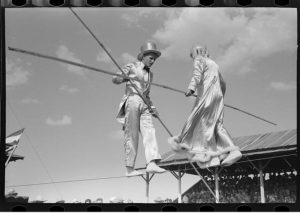 Recently I had the opportunity to address the President’s Council of Cornell Women (PCCW) on the theme of leadership. In so doing I faced the unique challenge of trying not to preach nor to present myself as an expert on what I could not experience. The challenge was to find those thematic leadership issues that are common to all regardless of race, culture, and gender.
Recently I had the opportunity to address the President’s Council of Cornell Women (PCCW) on the theme of leadership. In so doing I faced the unique challenge of trying not to preach nor to present myself as an expert on what I could not experience. The challenge was to find those thematic leadership issues that are common to all regardless of race, culture, and gender.
I walked away from the experience with a sense that the key set of skills that we all need are the necessary skills of execution. While certain groups face greater obstacles, the basic skills of execution demand a common language and a focused discussion on how to make sure that everyone has the minimum tools for moving agendas ahead. While clearly this field is not leveled, nor will it be leveled for a long time, we as teachers and trainers have to ask ourselves, what are the leadership skills we need to impart so that everyone has at least the same common skills on this uneven field?
Have been given this opportunity to talk to this group of outstanding women leaders it is something I had to ask myself and give much thought to. It is a question I think that more of us need to ask.
As a side note, in preparing for the talk, I had the chance to review one particularly insightful collection of essays, Women & Leadership: The State of Play and Strategies for Change edited by Barbara Kellerman and Deborah L. Rhode. It is an excellent compilation of theory and superb research summaries on women in leadership. It is, in my mind, the most innovative integrative material on the subject. Some of the excellent pieces in the volume include a an essay called The Great Women Theory of Leadership? by Todd L. Pittinsky, Laura M. Bacon, and Brain Welle. I also found the essay entitled Overcoming Resistance to Women Leaders by Linda L. Carli and Alice H. Eagly to be very helpful.
It’s a volume I’d strongly encourage anyone interested in leadership to review. It will force you to ask the same question I was forced to ask when I gave the PCCW talk: Where is the common ground between men and women? We know the differences, our challenge as teachers and trainers is to also deal with the commonalities.
It was a remarkable and wonderful learning experience.



